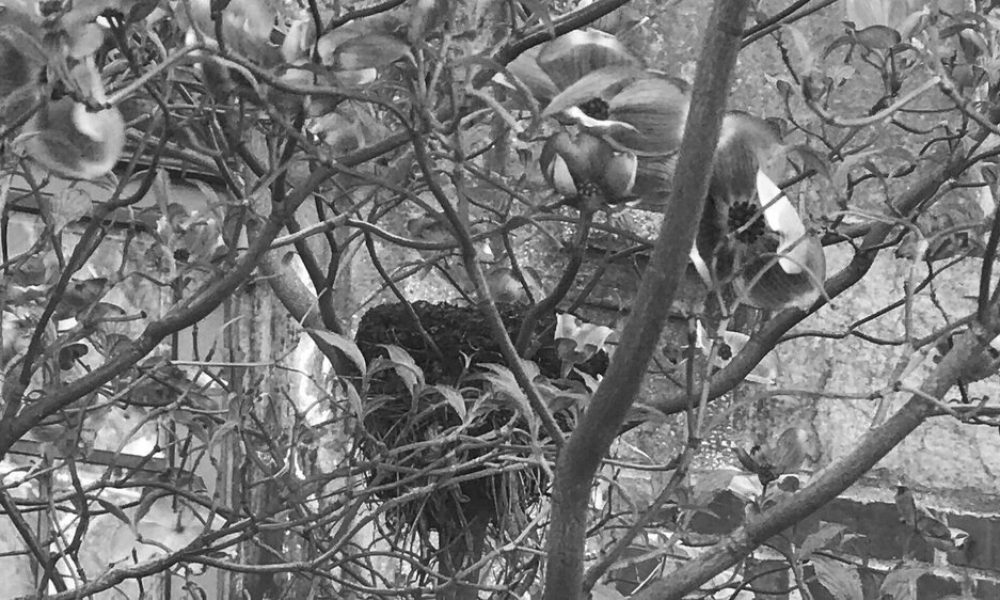Today I am drop-dead tired. My autistic son has been experiencing some major sleep disturbances the longer we remain on lockdown, and it affects the whole family. He’ll wake up in the middle of the night, ready to run around and play so rambunctiously that either I or my husband have to stay up with him to supervise. While he may be nearing his 8th birthday, his sense of safety resembles that of a toddler. He cannot be trusted to refrain from bodily harm or other activities that could destroy the house. He’s already flooded the bathroom, escaped into a freezing garage in his undies, leaned over an interior balcony in the house, and stood on kitchen counters to open cabinets filled with breakable things. Honestly, if I let myself think about all the close calls we’ve had, my hair would turn stark white.
Last night was one of the worst incidents ever. Though he was sleep quite sleep deprived, my son woke after only 4 hours of sleep and stayed up from 2-6 AM, when he finally fell back asleep. I lay on the second bed we have in his bedroom (a remnant from when my husband and I did feeding shifts in our son’s infancy), and I felt myself beginning to unravel. My brain has never been hardwired for good sleep, and this constant interruption is churning up some already stormy seas. Thankfully, we have access to clinicians who can treat our son, but even the best professionals can’t provide instant fixes. It all takes time. Meanwhile, as dire wrinkles get ironed out, I walk around feeling like my psyche is a thin web of glass, just waiting to shatter when the next projectile hits.
There’s a recent photo on my phone that captures my current state of mind. It was taken a couple of weekends ago, when my husband and I decided to take my son for a walk around Yale, our alma mater. While gorgeously decorated with new spring growth, the campus felt disturbingly barren. In the 30+ years since we arrived as incoming freshmen, we have never seen the college so devoid of faculty, staff, and students—not even during vacation breaks. While the emptiness made it easy to socially distance and maneuver our son around (he doesn’t do well in crowds), it also tinged our trip with a certain sorrow. People from all over the world visit Yale in a steady stream, and now that flow had been obstructed by a catastrophe we never saw coming.
Just before climbing back into our car, my husband pointed to a nearby tree and said, “Look at the bird’s nest.” Gazing into a riot of pink blossoms, I glimpsed a dark brown cup nestled among some interior branches. Immediately, I had two different responses, the first being that general sense of joy one feels while witnessing new life burgeoning, be it in a maternity ward or outdoors in nature. The second response was far more gut-roiling, far less rational. Inside I was suddenly shouting at the mother bird: What are you, CRAZY? Why would you risk having babies HERE, of all places, where you stick out like a sore thumb? Find somewhere better to hide—it is so NOT SAFE.
While the great St. Francis of Assisi supposedly preached to the birds, I believe it’s generally a good idea to take a wee break when one finds oneself rebuking local wildlife. What, exactly, was at the heart of my outburst? After some contemplation, I may have a clue.
I think it’s fair to say that many of us are not only confronting the truth of our mortality during this pandemic, but also the truth of our fragility.
Exposed to a microscopic agent, even the toughest of us can fall fast. And even if we do not succumb to sickness, life as we know it has collapsed like a house of cards that we cannot reconstruct. We no longer do what we want, go where we want, get what we want. And as we see the fractured path that leads into our future, we feel frustrated, fearful, lonely. We know that God is supposed to bring good from even the worst of circumstances, but this long and relentless super-set of them leaves us seriously doubting.
In short, we realize that the control we thought we wielded over our daily lives is a sham, and we’re not sure how reliably—or benevolently—God wields His when it comes to our wants and needs.
I’ll be honest with you—I struggle with my fragility in much the same manner as I struggle with my son’s insomnia. I experience it as something I desperately want to get rid of in order to be okay. And by “okay,” I mean more than being able to fulfill my responsibilities as a happy and healthy adult. I also mean being able to hold back the tidal wave of self-condemnation that constantly threatens to drown me from within.
For example, I get really furious when I need to take a nap during the day for whatever reason. (It seems like such an indulgence.) I judge myself harshly when making a parenting mistake. I set goals that are unreasonably high and extend little grace to myself in meeting them. I grow exasperated with my sensory sensitivities—the fact that sounds are often way too loud, lights are way too bright, etc. Lately I’m experiencing greater and greater discomfort living inside a body that is changing at nearly 50. And I’m always, always comparing myself to people, wondering why I’m so stressed out and overwhelmed by my problems when others seem so composed.
Are you getting the picture? Perhaps some of you inhabit that picture, that anti-fragile place.
The thing is, when I look through the Scriptures, I find no support for an outright rejection of fragility. Quite the opposite. When Jesus taught the multitudes, he put fragile things in a positive light. In the Sermon on the Mount, birds and flowers appear as objects of God’s tender care (Matt 6:26-30). The meek are blessed as inheritors of the earth (5:5). On multiple occasions, Jesus likens his beloved followers to sheep (see Matt 10:16, John 10:27, John 21:16-17)—vulnerable animals especially in need of safekeeping. For his part, the apostle Paul goes so far as to boast about his fragility (which he calls “weakness”—2 Cor 12:9) because it serves as a conduit for God’s power.
And let’s not forget that when Jesus spoke of the sacrificial act whereby he would save humankind, he described it as a demonstration of ultimate fragility (“This is my body, broken for you”—Luke 22:19)—and not as a manifestation of might. One might argue that the entire narrative of the incarnation, from Jesus’s birth to his death, plays out as an exploration of God’s handling of human fragility. How He uses earthen vessels to pour out heavenly blessing—the most awesome being His very Presence among us.
Perhaps the next time we feel tempted to deal harshly with ourselves in a fragile moment, we might try doing three small things—not only for our own sake, but for the sake of those to whom we will more readily show compassion if we can extend it to ourselves.
First, let us remember that God appears to have built fragility into the very fabric of creation. There are high and holy purposes that fragility accomplishes, even if we cannot always discern them at the time.
Second, let us submit our fragility to God rather than despising ourselves for it and working hard to eradicate it. As a wise friend once pointed out to me, some of the world’s most valuable and beautiful things are fragile, like a Stradivarius, or a rose. So, let us take that nap if we need to, attempt baby steps rather than giant leaps, cut ourselves some slack. After all, no one is positioned to manage our lives with greater kindness than we ourselves—a kindness that will prove more fruitful in the end than any slave-driving approach.
Finally, let us accept this divine invitation, which offers special grace to those who feel their fragility keenly and yearn for a loving Lord to lead the way:
Come to Me, all who labor and are heavy laden, and I will give you rest. Take My yoke upon you, and learn from Me, for I am gentle and lowly in heart, and you will find rest for your souls. For My yoke is easy, and My burden is light. (Matt. 11:28-30 ESV)
Far from having made a foolish decision, that mother bird likely knew what she was doing when she built her nest where she did. She was leaving her fate and that of her offspring in infinite hands, right where it belongs. Perhaps she was even guided by her Maker to let her home be a sign to humans that hope still lives in a desolate time.
I pray that I will see more such signs. And that I will also display them.
Will you don His yoke and join me? The world could use us all.


